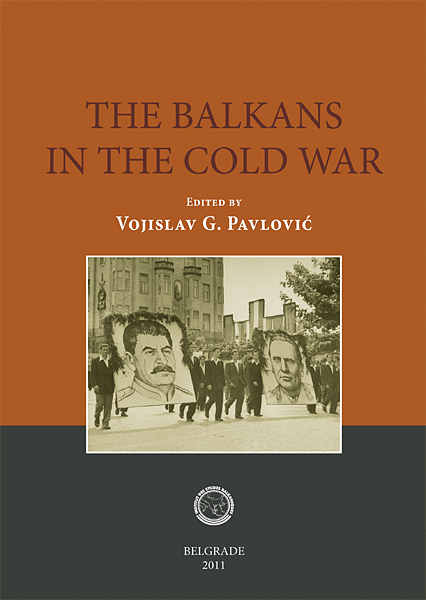News
The Balkans in the Cold War

The Balkans in the Cold War. Balkan Federations, Cominform, Yugoslav-Soviet Conflict, a recently released publication of the Institute for Balkan Studies, edited by Vojislav G. Pavlović, presents the relevant research done by Serbian, Russian and Finnish historians. Their contributions push back the chronological boundaries of the Cold War in tracing its roots to the strategies of the warring sides during the civil war in Yugoslavia and their relations with members of the Allied anti-Nazi coalition. The stage for the problems and developments that were to mark the history of the Cold War in the Balkans had already been set during the war. They took the form of bloc confrontation during the conflict on the western border of communist Yugoslavia and the northern border of Greece even before Winston Churchill, in his well-known speech at Fulton, Missouri, had first suggested the presence of an iron curtain in the East.
The Cold War had not only begun earlier in the Balkans than in other parts of Europe, but it also had its distinctive regional features. The conflict between two forms of Stalinism, Yugoslav and Soviet, marked the history of the communist movement in the second half of the 20th century. Banished from the Soviet bloc, the Yugoslav communists were forced to turn to the Western bloc, with which they established military and economic cooperation. This new foreign policy orientation required a new foreign policy strategy, but also an ideological, if not effective, reform of the existing Stalinist system. Acting in compliance with the principle of communist solidarity, Yugoslav neighbours, notably Hungary, Bulgaria and Albania, made a full contribution to the conflict between the Soviet and Yugoslav communists. The destiny of the Cominform, the main vehicle of condemnation of Yugoslavia, best reflects the outcome of the conflict. After relations between the Soviet and Yugoslav parties and states were re-established, the Cominform was dissolved.
The volume results from joint projects between the Institute for Balkan Studies of the Serbian Academy of Sciences and Arts and the Institute for Slavic Studies of the Russian Academy of Sciences.
| Contents |